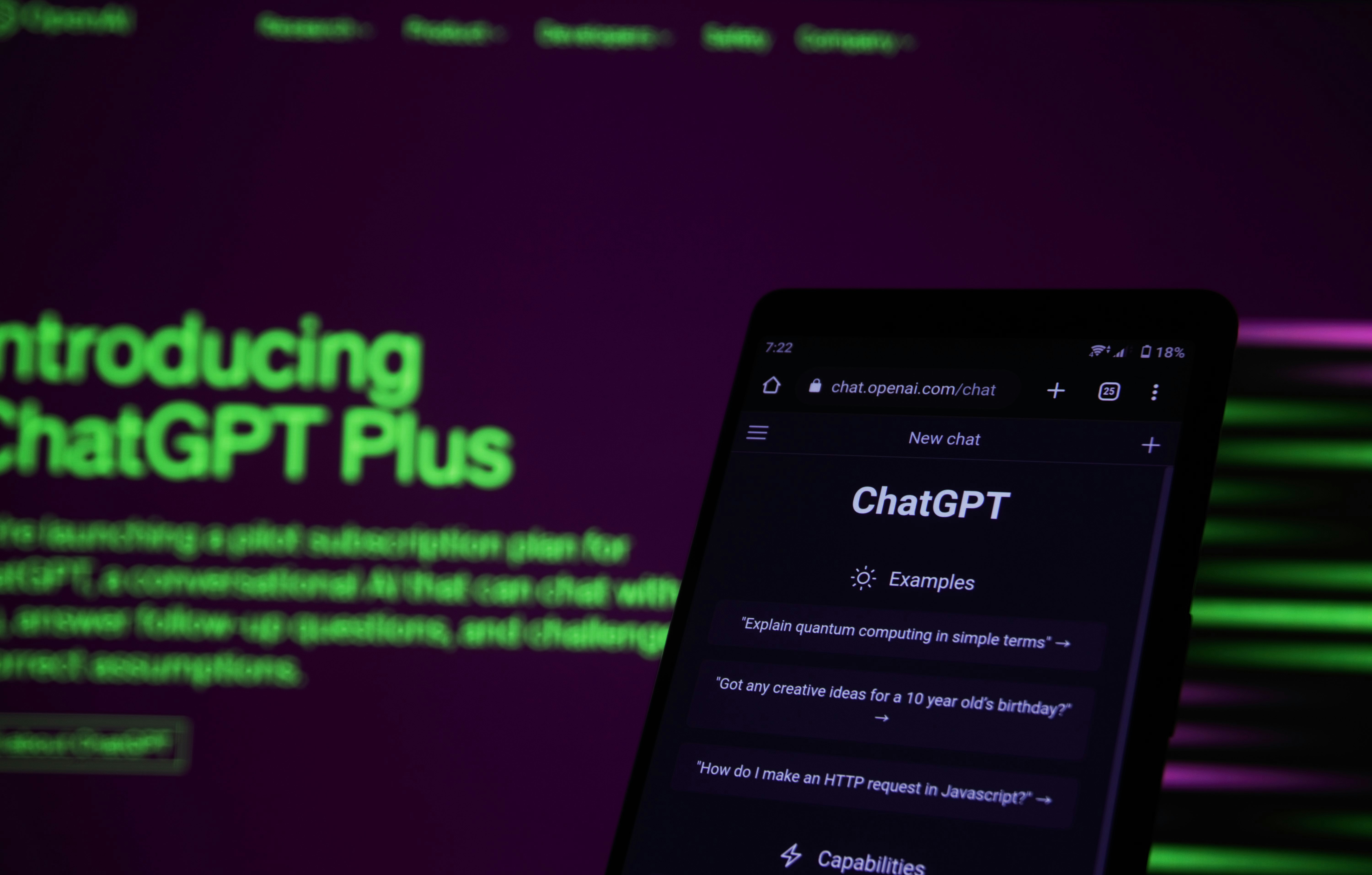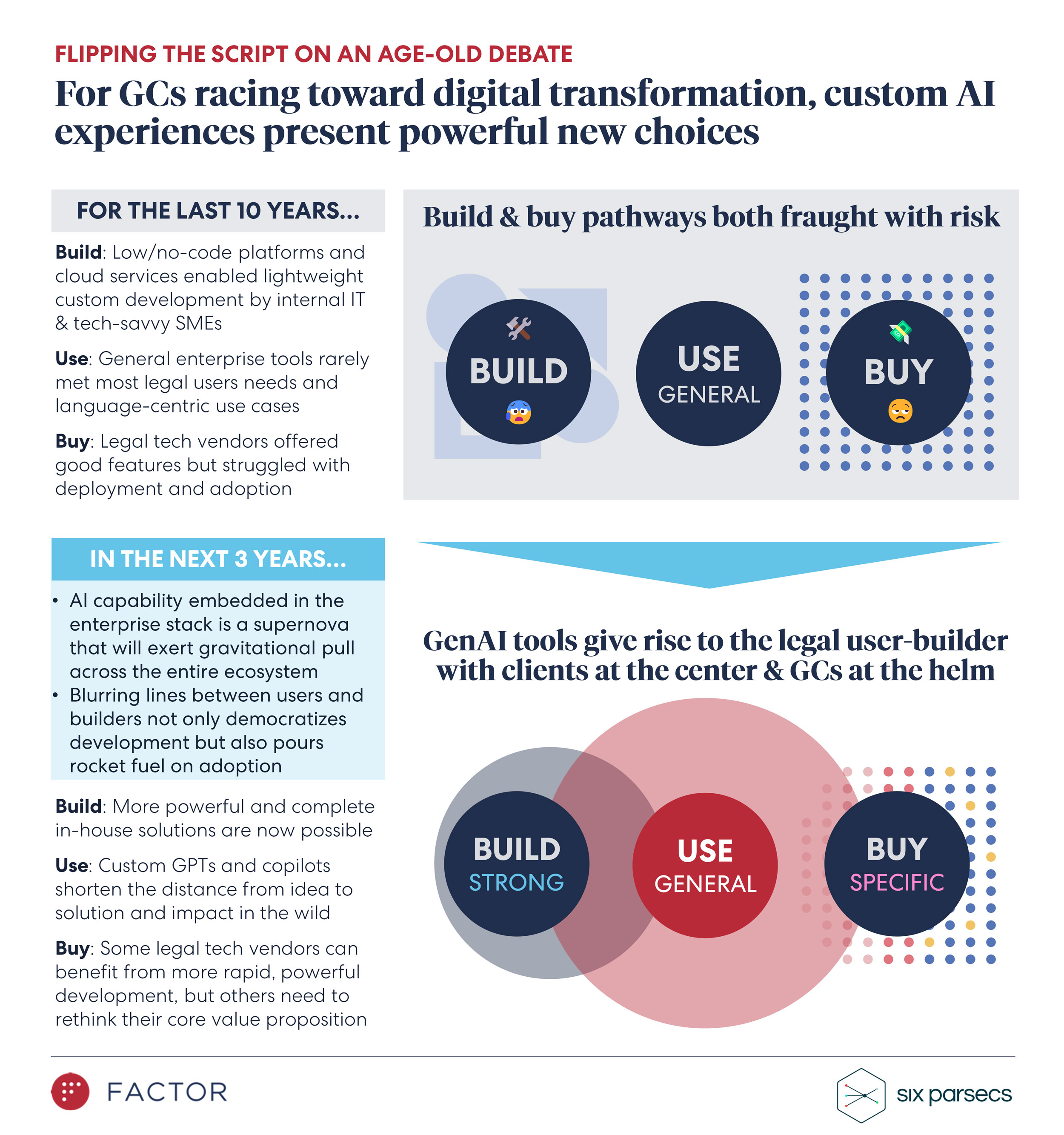
Originally published by Legaltech News. By Ed Sohn, Factor & Jae Um, SixParsecs
A year after the release of ChatGPT, OpenAI endured a roller-coaster ride of senior management turmoil, with the firing of CEO Sam Altman and Greg Brockman, threatened walkouts and open offers from Microsoft to hire the entire team, and the subsequent re-hiring of Altman, Brockman and new board members. Although the software did not report any significant downtime, the rapid series of events almost felt like some kind of outage.
The question on everyone’s minds, one still lacking a clear answer: what was the source of this sudden chaos?
One of the purported sources of turmoil was between tech research and commercial product. The not-for-profit research and safety mission of OpenAI co-existed in tension with the product agenda of the for-profit subsidiary, expressed in ChatGPT and the commercial licensing of the models in environments like Microsoft Azure.
The tension became more pronounced when, on OpenAI’s Dev Day, Altman announced the ability to create custom GPTs through a feature called GPT Builder, a milestone in democratizing AI capabilities.
Custom GPTs = Bespoke Solutions at Scale
GPT Builder—and Microsoft’s Copilot Studio, announced about a week later—enables users to tailor AI tools to specific needs on the fly. Importantly, both tools create chat experiences that are interoperable, plugging into your email, editing your documents, pulling in web results, and connecting with enterprise systems of record.
The response has been highly energetic. In the weeks that have followed, social media has been flooded with new customized GenAI experiences created by enthusiasts and users who have no engineering or coding experience—and this is only the beginning. Conversational English is now a powerful programming language and every user can easily become a maker, limited primarily by imagination.
Evolving Past ‘Build vs. Buy’ Into an Era of User Dominance
The potential impact on legal teams is vast. Historically, like other business functions, the general counsel’s office has decided between “build” and “buy” business cases for legal technology.
Broadly speaking, build options were often motivated by constrained budgets. Typically, build projects focused on must-have features for siloed teams, perceived as unique and absent in the market. Buy options, on the other hand, typically sought a sense of precision through an RFP process, feature completeness with a faster path to value, and the outsourcing of risk in performance, uptime and scale.
Both options have pros and cons, and both have seen ebbs and flows of popularity. Buy options have been more polished products, while build options have been generally viewed as homebrews made less artfully and in sufficient but less complete ways. Neither assured a smooth progression along the bumpy road of user adoption and change management, and both frequently failed to achieve their business case.
Customizable GenAI alters this decision calculus because it presents new options of unprecedented strength. Instead of thinking of build versus buy, the options are now:
Build strong. The enterprise stack has been gifted with powerful AI tools available to both citizen and professional developers, incorporated in a native way within the enterprise cloud environments, like Azure, Google Cloud and AWS. Building a custom app in-house is no longer a second-class option. GenAI offers next-gen capabilities and integration that can supercharge in-house solutions so they are tailored to meet requirements and connect with data. Your tech innovators can act with industrial strength.
Buy specific. The legal tech product market will continue to integrate the newest GenAI capabilities, enabling faster pathways to delivering highly relevant products to market. This won’t be easy; costs and investments have been sunk into existing paradigms and frameworks, and delivery on existing roadmaps is not easily interrupted without change costs. As pundits have noted, not every software provider will survive those changes—they have viewed the custom GPT unveiling as an “extinction event” for many startups and SaaS companies. That pressure will be felt in equal if not greater force in legal tech. But some software makers will thrive, pushing new boundaries with their command of domain, ownership of use cases and the scale of their installed user base.
Use general. Customizable GenAI products, like Copilot Studio and GPT Builder, are crashing into every organization’s enterprise stack. We chose the word “use” because general counsel are not the buyers of these global tools for their enterprise, but they are users of them. Users of customizable GenAI have access to the capabilities of a software developer, blurring the lines between internal development, external vendors, and everyday users. Now, any lawyer or legal professional can decide to try their hand at solving a pain point—today. Every user is now equipped to be a builder, unlocking the potential for nearly instantaneous product development cycles. Over time, some users may even become master builders.
Share insights and learn from others, both internally and externally. One of the features of the GPT Builder platform is the ability to share custom GPTs and even publish them to be sold in a marketplace. But Allie Miller, former IBM and Amazon AI executive, noted that GPTs released within private enterprise environments may make more sense than a marketplace. We believe that collaborating within communities of similarly positioned user-builders has exponential returns on investment.
Prepare for the AI co-worker. The ability to customize AI conversationally marks an important milestone towards a more complete agent that presents as a GenAI teammate. Agents with more autonomy will resemble humans, interact with our teams through our systems, and grow their own abilities.
AI advancements continue to arrive fast, adding ambiguity and uncertainty around many teams – even at the leading AI company in the world. Through the fast-paced chaos, we can catch glimpses of the future of legal work, and it includes user-centric, customizable GenAI integrating with our teams. To get there, general counsel will need both preparation and boldness to make smart choices.


